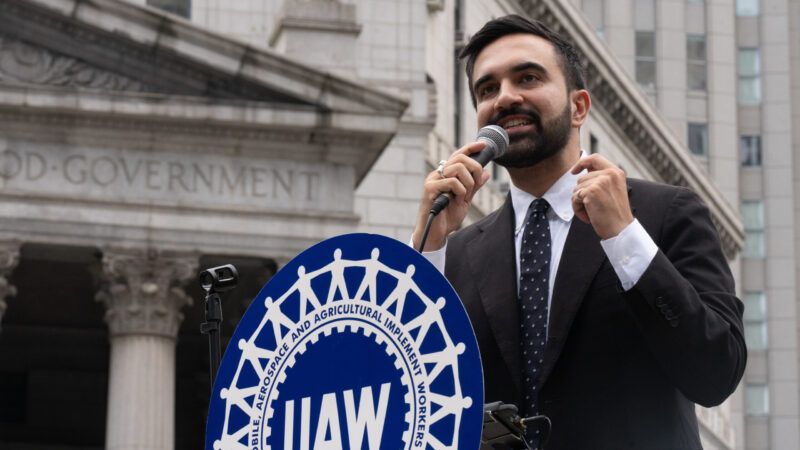Can Wall Street Survive a Socialist Mayor?
If Zohran Mamdani turns socialist rhetoric into policy, New York’s financial giants may not stick around to see how that plays out.

New York City is the undisputed financial capital of the world. The largest banks and the biggest hedge funds are all located in New York or the surrounding tristate area, not to mention the biggest exchanges, with the deepest and most liquid capital markets in the world. The city has not always been the most pleasant place to live. Some people are concerned that Zohran Mamdani might make it an even less pleasant place to live if elected mayor and are speculating that New York's vast and profitable financial industry will relocate to places like Nashville, Austin, Miami, or Atlanta in the event of the self-described socialist being put in charge of the home to the beating heart of capitalism.
New York City has survived more than a few spells of mismanagement—in the 1960s and 1970s, and again in the late 1980s. Poor management made the city almost uninhabitable, yet the financial industry remained. Things are different today. For example, the New York Stock Exchange's market share of stock trading has dropped to 10 percent today, and most exchanges are electronic and can operate from anywhere. During the pandemic, most of the big banks' trading floors operated virtually, enabled by the Bloomberg Terminal's indispensable chat feature. These days, trading can happen from anywhere.
Industries tend to cluster in specific locations—health care in Minneapolis, energy in Houston, insurance in Hartford, and finance in New York. There are beneficial network effects from clustering, but when business can be conducted virtually, the clustering benefits all but disappear. In the past five years, there have been a handful of large financial firms that have set up shop outside of New York. The first to leave was AllianceBernstein, an asset manager, which built a brand-new headquarters in Nashville. The enormous hedge fund Citadel is in the process of setting up an office in Miami. Even Goldman Sachs is setting up a large presence in Dallas and Miami. In total, 158 firms with $1 trillion in assets have left NYC in the last five years. This is probably just the beginning.
Mamdani threatens to raise taxes, but any tax hike must be approved by the state Legislature, so large tax hikes, at least initially, are unlikely. Even still, New York City remains the most heavily taxed jurisdiction, even above California, with a top marginal rate of 14.775 percent. But outside of taxes, the obvious concerns are crime and general livability. Mamdani has not backed off his desire to cut the prison population, claiming that the currest system "makes everyone more unsafe." New York has a reputation for being a high-crime city, but it is actually safer than most large cities, especially in midtown Manhattan. However, the moment a banker is killed in a random act of violence on Park Avenue, a rapid exodus will likely be triggered.
Mamdani was not alive during New York's last big experiment with rent control, which resulted in "urban decay." He pledges to freeze the rent, which will lead to a further shortage of apartments and disincentivize landlords from maintaining them. History has shown that the fastest way to destroy a city is through rent control, yet even after it has been discredited, it keeps coming back into vogue.
There are some structural advantages to being in New York—temperate weather, the time zone, the availability of transportation—but Mamdani has communicated that billionaire contributions are not appreciated. If a significant portion of the financial industry leaves, along with its tax base, and if Mamdani increases spending as he says he will, it is almost certain that the city will go bankrupt, as it nearly did before. As the saying goes, the problem with socialism is that you eventually run out of other people's money.


Show Comments (144)